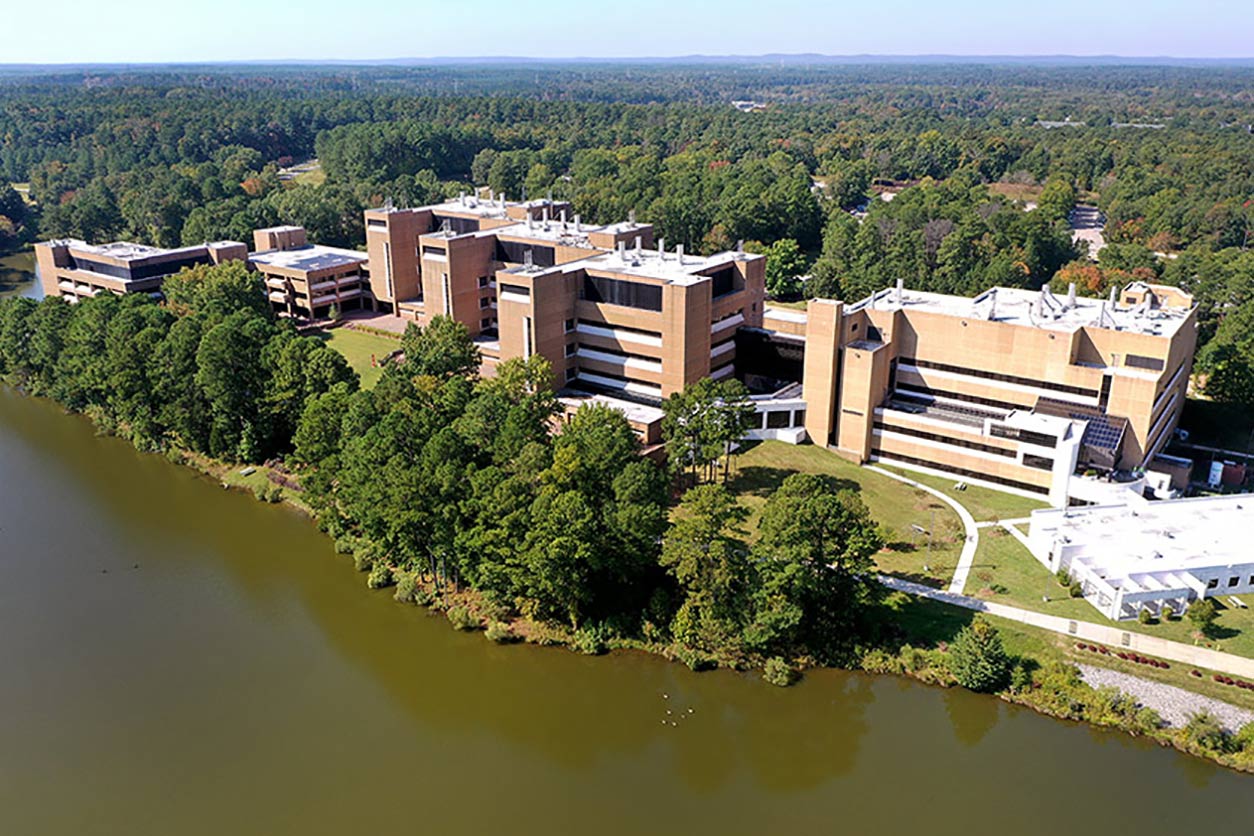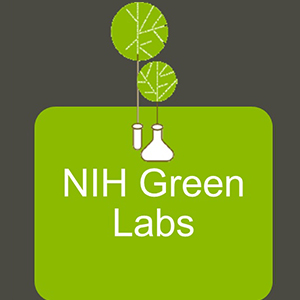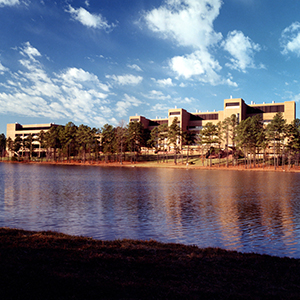 Hartung said that RECs are an important part of the equation for turning NIEHS into a net-zero energy campus. (Photo courtesy of Steve McCaw / NIEHS)
Hartung said that RECs are an important part of the equation for turning NIEHS into a net-zero energy campus. (Photo courtesy of Steve McCaw / NIEHS)With the purchase of Renewable Energy Certificates (RECs), the NIEHS campus has officially achieved a net-zero energy–REC designation. The accomplishment demonstrates the institute’s long-standing commitment to promote the health of the community and the planet.
Zero energy sites combine energy efficiency and renewable energy generation to consume only as much energy as can be produced onsite. Because scientific research is an energy-intensive activity, it can be difficult for an institute like NIEHS to generate enough renewable power to meet its needs. RECs are commodities representing kilowatt hours of renewable energy that institutions can acquire to sustainably supplement the electricity they produce onsite. When RECs are used, the designation is known as net-zero energy–REC.
“We are the first campus across the National Institutes of Health [NIH] and the Department of Health and Human Services [HHS], and, to my knowledge, the first federal government research lab, to become a net-zero energy–REC site,” said NIEHS Sustainability Coordinator Kerri Hartung.
Clean energy’s currency
The institute has been a leader in sustainability for years, according to NIEHS Environmental Manager Paul Johnson.
“We were recycling long before it became institutionalized, and now we are doing the same thing with regard to energy use,” he said. “It is who we are as an institute — we are people who care about the environment.”
NIEHS has a long-standing commitment to energy conservation, having built a net-zero energy warehouse, the first of its kind across NIH and HHS; installed energy-saving electrochromic glass and lighting in the main research building on campus; upgraded equipment in the Central Utility Plant; and purchased more energy-efficient research freezers.
In 2020, NIEHS kick-started the process of creating a net-zero energy campus through a three-pronged effort that included the following.
 Johnson said that because NIEHS has “environmental” in its name, it is fitting that the institution lead by example in championing environmental stewardship efforts. (Photo courtesy of Steve McCaw / NIEHS)
Johnson said that because NIEHS has “environmental” in its name, it is fitting that the institution lead by example in championing environmental stewardship efforts. (Photo courtesy of Steve McCaw / NIEHS)- Decreasing energy demand and increasing energy efficiency.
- Increasing onsite renewable electricity generation.
- Purchasing RECs to fill program gaps as other projects take hold.
RECs are the currency of all the renewable energy on the market today. They allow buyers to claim that the energy they use comes from a renewable resource with low or zero energy emissions.
“With RECs, you are helping to green the grid because you are fostering a market where there is more development of solar, wind, and other renewable energies,” said Hartung. “We see this as a positive step as we work toward becoming a more sustainable institution.”
A head start
The Energy Policy Act of 2005 set renewable energy goals for federal agencies, including that at least 7.5% of total electricity consumption should come from renewable sources. These sources could take the form of onsite generation, electricity purchased from renewable sources, or RECs.
Every year, NIH has met this requirement by purchasing RECs to account for 7.5% of the electricity consumed across all of its campuses. Starting in 2021, NIH will allocate those RECs to the NIEHS sustainability effort. Their purchase of 35,000 kilowatt hours covered 75% of the 46,000 kilowatt hours of energy expended by NIEHS during fiscal year 2021, with NIEHS purchasing the remaining 25% of needed RECs.
 The 2021 NIEHS Sustainability Report mentioned the purchase of RECs as a way to reduce the institute’s energy footprint. (Photo courtesy of Scott Rucci / NIEHS)
The 2021 NIEHS Sustainability Report mentioned the purchase of RECs as a way to reduce the institute’s energy footprint. (Photo courtesy of Scott Rucci / NIEHS)“That’s a pretty powerful bang for our buck in terms of greening our footprint and going renewable,” said Hartung.
The investment gives NIEHS a head start as it continues to develop and implement engineering projects to address the other aspects of its sustainability plan — reducing the institute’s energy footprint and generating more renewable energy, such as through installation of additional solar panels on campus.
“As we do better with our energy footprint, we can hopefully buy fewer RECs over time,” noted Hartung.
(Marla Broadfoot, Ph.D., is a contract writer for the NIEHS Office of Communications and Public Liaison.)
(Note: On May 19, 2023, this article was updated to clarify that NIEHS specifically achieved the net-zero energy–REC designation. Check out the sidebar to learn more about that designation and other terms related to sustainability and renewable energy.)









